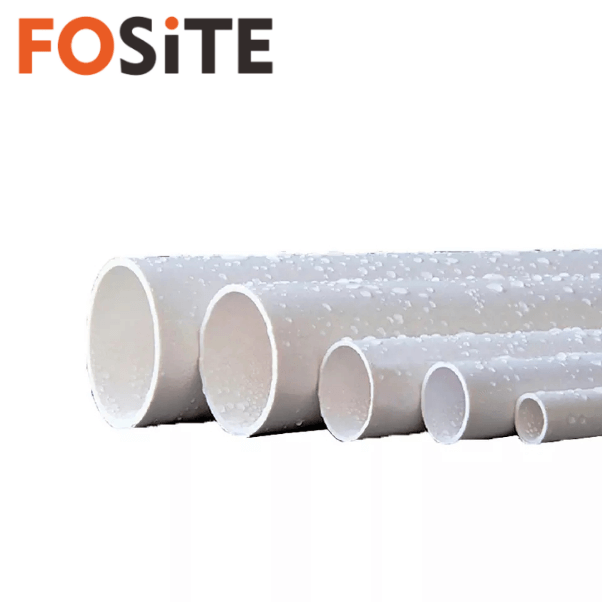OEM factory offers plum bing supplies with your own private label
 shentong
shentong  2025-03-11
2025-03-11

PVC or Polyvinyl Chloride pipes use vinyl and plastic materials. We use these pipes in plumbing systems. If you do not want to use expensive copper pipes in your plumbing, you can consider PVC pipes. You can expect the same benefits without hurting your budget. Also, you can use PVC to generate electrical conduits.
Even if regular PVC and conduit PVC use the same material during manufacturing. They are different You will have to choose the right one based on your applications. You will have to use them in appropriate environments. There are a few differences that make both these options unique and different from one another.
Pressure is the key difference between a PVC conduit and a PVC pipe. It is worth mentioning that PVC conduits will not go through a pressure testing process, like the PVC pipe. As mentioned earlier, we use PVC pipes in plumbing systems. Hence, the pipe needs to be strong enough to withstand the pressure of water.
If the pipe cannot withstand the water pressure, you cannot expect improved functionality, stability, and durability. As a PVC conduit cannot resist water pressure, you cannot use it in your plumbing. However, PVC pipes can last long and serve you for a long time regardless of the pressure level.
Even if the manufacturing material is the same, the usage will vary. As stated above, we need PVC pipes in plumbing systems. You can also use PVC pipes in any other pressurized system. However, a PVC conduit is effective only in electrical systems. You can use the shentong to get a durable result and improved performance.
When it comes to PVC pipes, you can use them to carry water. But you can use PVC conduits in wiring. It is a considerable difference between these two types. In some cases, you can also use PVC pipes in electrical systems. But it needs to meet the safety requirements on temperature or flame resistance.
However, you cannot use a PVC conduit in plumbing systems. In brief, you can replace a PVC conduit with a PVC pipe, but you cannot replace a PVC pipe with a PVC conduit. There might be some exceptions. Yes, you can use a PVC conduit when the water is not under pressure. We can take the example of a drain pipe.


From the usage. you might have realized that PVC pipes are thicker than conduits. The PVC pipes come with a solid design due to their unique working conditions. As we use PVC pipes in plumbing systems, the pressure will be the deciding factor. Without the desired thickness, the pipes cannot withstand the pressure.
They will break and might not offer maximum benefits. However, PVC conduits do not need a thick design. They will not have to deal with high water pressure. Hence, they are not as sturdy as PVC pipes. The thickness of PVC conduits supports its usage in electrical systems.
We use PVC pipes in plumbing systems. The plumbing systems are available underground or indoors. Hence, they do not get sunlight or UV light exposure. It is worth mentioning that UV lights can harm PVC pipes. However, PVC conduits can withstand sunlight and UV rays. You can use them in your outdoor applications. But you will have to ensure that the application is waterproof. You can use PVC conduits in electric cables across your rooftop.
These are a few differences between PVC pipes and PVC conduits. Both will serve some specific purposes. The design, waterproof ability, thickness, and pressure-resistant capability make them suitable for some unique applications.